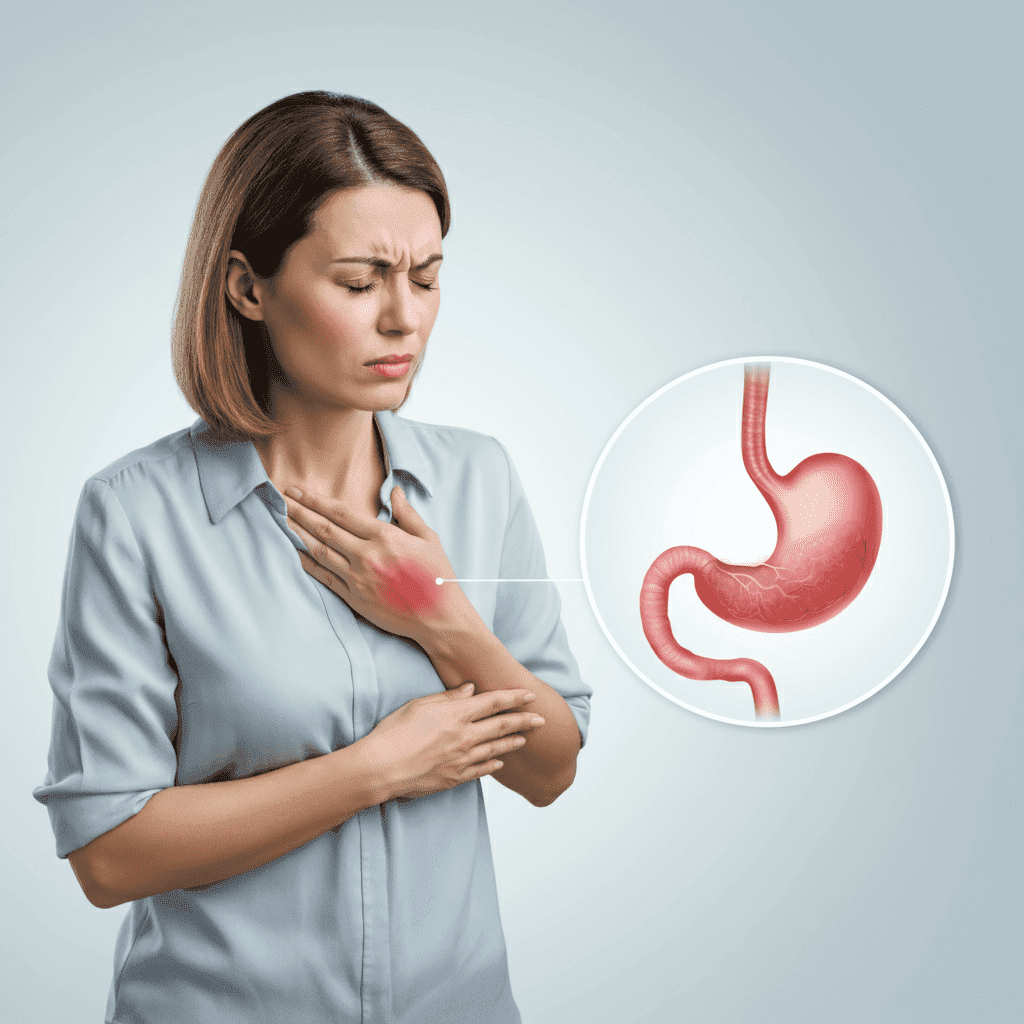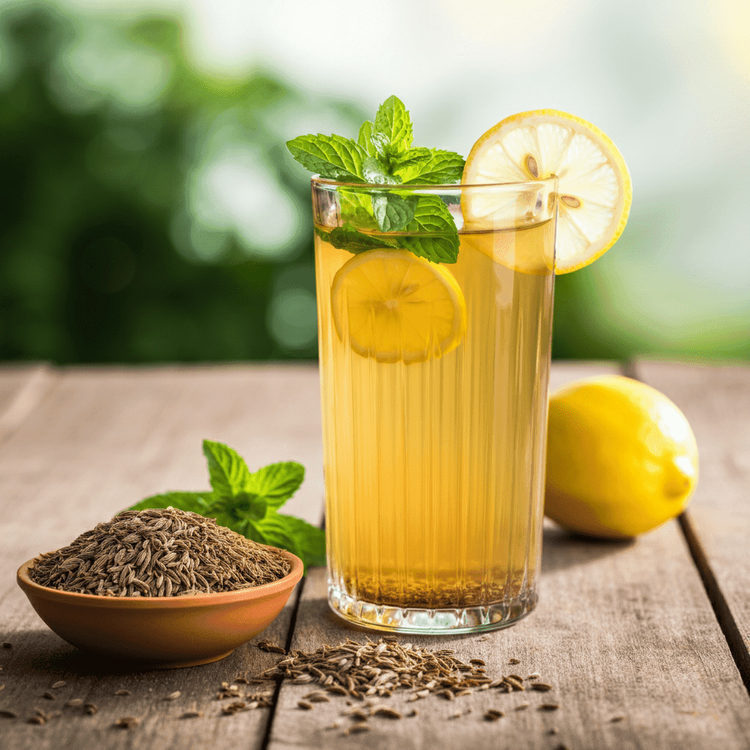Do you constantly experience heartburn, chest pain, or a bitter taste in your mouth after eating? You may be suffering from one of the most common digestive conditions known as acid reflux.
I have seen many people suffering from this condition, and most of them are not aware that the food they eat can worsen their symptoms. Hence, it is crucial to know which foods to avoid when you have acid reflux.
According to my experience, here are the top 7 foods to avoid when you have acid reflux. If you want to find relief and manage your symptoms effectively, it is recommended to eliminate or limit these foods from your diet. After some time, you can reintroduce them in small portions to see how your body reacts.
Must Read: How to Prevent Stomach Bloating
What are the causes of acid reflux?

There are plenty of things that can cause acid reflux, like:
- Smoking
- Pregnancy
- Hiatal hernia
- Obesity
- Consuming a heavy meal or lying down right after eating
- Acidic foods
- Certain medications
These are some of the common causes, but each person may have different triggers for their acid reflux. It is essential to identify and understand your own personal triggers to effectively manage your symptoms.
Top 7 Foods to Avoid When You Have Acid Reflux
1. Spicy Foods

You should avoid spicy foods when you are experiencing acidity. Spices like chili, pepper, and garlic can irritate the esophagus and trigger acid reflux. It is best to avoid or limit spicy foods until your symptoms improve. Here are the types of spicy foods you should avoid:
- Hot sauces
- Curry dishes
- Garlic and onion-based dishes
- Spicy chips and snacks
- Mexican and Thai cuisine
These foods can also be high in fat, which can further aggravate acid reflux and heartburn. If you are a fan of spicy food, try incorporating milder spices like turmeric, cumin, or coriander into your meals instead.
2. Fried and Fatty Foods

Fried and fatty foods should also be avoided when dealing with acidity. These foods take longer to digest and can trigger more stomach acid production, leading to heartburn and discomfort.
When your stomach is already producing too much acid, fried foods can make the situation worse. The high-fat content in these foods can also contribute to weight gain and other health problems.
These are the most common fried and fatty foods you should avoid.
- French fries
- Fried chicken
- Fried fish
- Onion rings
- Pizza
- Hamburgers (Cheeseburger)
- Burritos
- Tacos
If you occasionally crave fried foods, there are healthier alternatives that use different cooking methods. You can try baking, grilling, or air-frying your meals instead. These methods can significantly reduce the amount of oil and unhealthy fats in your food. Additionally, incorporating more fruits and vegetables into your diet can help reduce cravings for fried foods.
3. Citrus Fruits

Yes, citrus fruits are healthy and packed with nutrients. However, if you suffer from acid reflux disease, you should avoid certain types of citrus fruits as they can worsen your symptoms. These include:
- Oranges
- Lemons
- Grapefruits
- Pineapple
- Tomatoes
These fruits are high in acidity, which can increase the production of stomach acid and cause irritation to the esophagus. If you're experiencing acid reflux symptoms, it's best to steer clear of these fruits or consume them in moderation. Do not worry, after your symptoms have subsided, you can slowly reintroduce these fruits into your diet. For now, you can try incorporating low-acid alternatives such as:
- Bananas
- Melons
- Apples
- Berries
These fruits are lower in acidity and can be a great addition to your diet while dealing with acid reflux.
4. Caffeine and Carbonated Beverages

Caffeine and carbonated beverages can also trigger acid reflux symptoms due to their high acidity levels. I remember when I used to drink multiple cups of coffee a day and would constantly experience heartburn.
Chamomile tea has anti-inflammatory properties that can help soothe the lining of the esophagus and reduce symptoms of acid reflux. So why don't you swap that extra cup of coffee or soda for a relaxing chamomile tea instead? Not only will it help with acid reflux, but it also has been shown to improve sleep quality and reduce stress.
5. Alcohol

Alcohol consumption is a common cause of acid reflux and can worsen symptoms for those who already suffer from it. You may have noticed that after a night of drinking, you experience heartburn or acid regurgitation more frequently. I saw many patients in my clinic who complained of heartburn after drinking too much alcohol all night.
So I advise them to limit their alcohol consumption and avoid drinking on an empty stomach. And since you already suffer from acid reflux, it is important that you completely stop your alcohol consumption until your symptoms improve. This may be difficult, but it is crucial for managing your acid reflux and promoting overall digestive health.
6. Chocolate

Another food that can aggravate your symptoms and should be avoided is chocolate. Yes, unfortunately, if you have acid reflux, chocolate should be limited or completely eliminated from your diet.
This sweet treat contains a high amount of fat and caffeine, both of which are known triggers for acid reflux. It would be best to avoid any type of chocolate, including milk chocolate, dark chocolate, and white chocolate.
Once your symptoms have improved, you can slowly reintroduce small amounts of chocolate into your diet and see if it triggers any symptoms. If it does, then it would be best to continue avoiding chocolate altogether.
7. Mint Fresh

Mint is a popular flavor in many foods, drinks, and even toothpaste. However, if you have acid reflux, it's important to be cautious when consuming mint. Mint can relax the lower esophageal sphincter, which is responsible for keeping acid from entering the esophagus. This could lead to acid reflux symptoms and discomfort.
If you enjoy the refreshing taste of mint, there are some alternatives you can try. But if you have severe acid reflux, it may be best to avoid mint completely.
Final Thoughts
Acid reflux can be a difficult and uncomfortable condition to manage, but making small changes in your diet can make a big difference. By avoiding these seven trigger foods, you can help reduce your symptoms and improve your overall quality of life.
Incorporating other healthy habits like regular exercise, stress management techniques, and eating smaller meals throughout the day can also help manage acid reflux symptoms.
Talk to your doctor if you continue to experience frequent or severe acid reflux symptoms even after making changes in your diet. They can provide personalized recommendations and possibly prescribe medication if necessary. After some days of following these recommendations, you may find that your acid reflux symptoms have improved.
Frequently Asked Questions
Are carbonated beverages a problem?
Yes, carbonated drinks can increase stomach pressure and lead to acid reflux. Opt for plain or flavored water, 100% fruit juice, or milk.
What oils or fats are safe to use for cooking?
Stick to healthier options like olive oil or avocado oil, and use them sparingly to avoid aggravating reflux symptoms.
Can stress make acid reflux worse?
Yes, stress can worsen acid reflux symptoms by increasing stomach acid production and affecting digestion.
Does drinking water help with acid reflux?
Drinking small amounts of water during or after meals can help wash down stomach acid and provide temporary relief. However, drinking excessive water may worsen symptoms by overfilling the stomach.
Which sleeping position is best for reducing acid reflux?
Elevating the head of the bed by 6-8 inches or sleeping on a wedge pillow can help prevent acid reflux during sleep. Lying on your left side also helps keep stomach acid from flowing into the esophagus.
How long does it usually take for acid reflux to get better?
The duration of treatment for acid reflux depends on the severity and underlying causes of the condition. If you follow a treatment plan and make necessary lifestyle changes, symptoms may improve within a few weeks. But chronic or severe acid reflux symptoms may require long-term management and regular medication to control.
Related Reading: The Benefits of Jeera Water for Digestion




